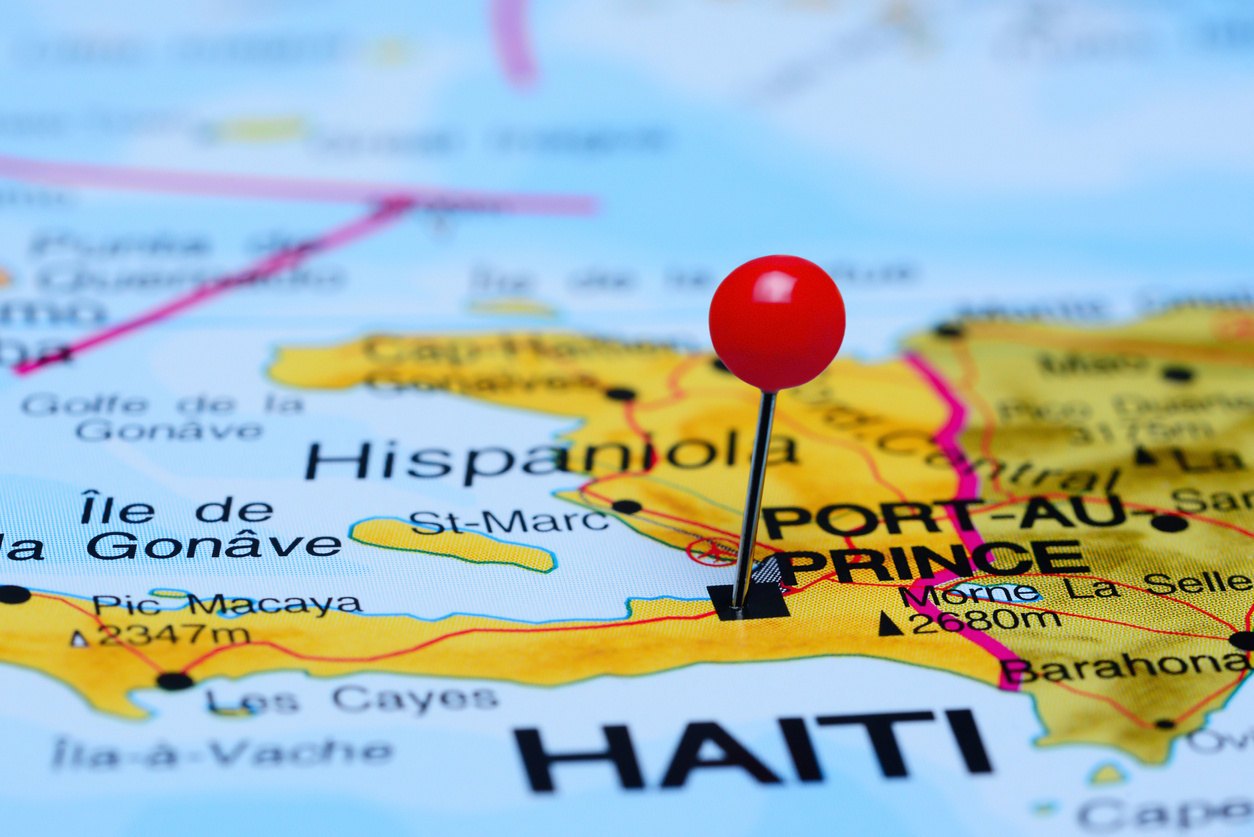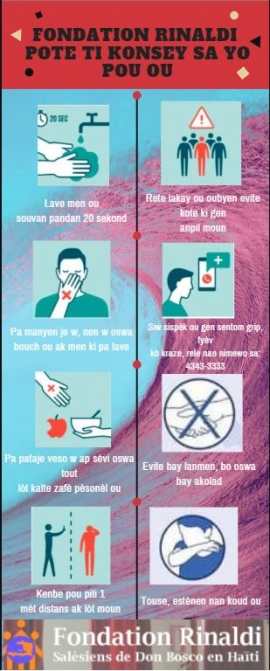HAITI: The Rinaldi Foundation responds to coronavirus pandemic as country fears spread due to lack of clean water and no health system

(MissionNewswire) The Rinaldi Foundation, the Salesian Planning and Development Office in Haiti, has started prevention and awareness activities to help stop the spread of the coronavirus. While Haiti currently has a very limited number of cases, there is real fear in the country due to the structural weaknesses Haiti has been subjected to for years. Primarily, Haiti has no national health system and relies on clinics facilitated by nongovernmental organizations and the church.
On March 19. Haiti’s president declared a state of health emergency throughout the country, which included the closure of schools and churches, a ban on rallies, limitations on travel, and encouraging hygiene and public health practices. But most of the population cannot afford these measures.
 “There is no clean water anywhere to wash your hands as required, there is no electricity in the houses and there are not even hospitals. Many people live on the streets, so it is very difficult to remain closed somewhere,” reported a Redemptorist missionary to the agency Fides.
“There is no clean water anywhere to wash your hands as required, there is no electricity in the houses and there are not even hospitals. Many people live on the streets, so it is very difficult to remain closed somewhere,” reported a Redemptorist missionary to the agency Fides.
As soon as there was news of the virus’s arrival, the Rinaldi Foundation held an emergency meeting with all participants while keeping their social distance and taking extraordinary measures to ensure the safety of personnel. The Foundation also contacted all local communities to motivate them and raise awareness of how to deal with the situation, including the placement of water distribution points in Salesian centers, and other good practices.
At the same time, an awareness-raising campaign was launched through the Foundation’s Facebook page. The prevention messages are simple and easy to follow with explanatory images and Creole-language texts, the language that every Haitian speaks and understands very well.
Buckets of chlorinated water have also been placed in all Salesian communities so that the few visitors who arrive can wash their hands thoroughly. In some places, there is a container at the main entrance of the communities so those passing by may wash their hands. There are also messages that invite citizens to protect themselves from the coronavirus.
A representative from the Rinaldi Foundation said, “Around us we see people who were already living in suffering, with a large majority of people who need to go out every day to earn their daily bread. Now asking this majority to stay home to avoid spreading the virus will expose them to another challenge, that of finding food. Some are beginning to think that some people may die not from coronavirus, but from hunger. For this reason, we are evaluating if it will be possible to find the means to distribute not only sanitary kits (masks, gloves, soaps, disinfectants, chlorine, alcohol), but also food kits (rice, beans, spaghetti, oil, milk).”
Salesian missionaries began working in Haiti in 1935 in response to the Haitian government’s request for a professional school. Since then, Salesian missionaries have expanded their work to include 11 main educational centers and more than 200 schools across the country.
The 11 main centers each include a number of primary and secondary schools, vocational training centers, and other programs for street children and youth in need. Salesian programs are located throughout Haiti, including in the cities of Port-au-Prince, Fort-Liberté, Cap-Haïtien, Les Cayes and Gressier. Today, Salesian missionaries in Haiti provide the largest source of education outside of the Haitian government with schools providing education to 25,500 primary and secondary school students.
Haiti is the poorest country in the Americas ranking 163 out of 188 countries on the United Nations Human Development Index. The country also faces the highest levels of severe food insecurity in the world, according to the World Food Programme. More than half of the country’s population was chronically undernourished during 2012-2014, representing a total of 5.3 million Haitians. Nearly 100,000 Haitian children under the age of 5 suffer from acute malnutrition, causing irreversible stunted growth for close to 30 percent of all children in the country.
###
Sources:
ANS Photo (usage permissions and guidelines must be requested from ANS)
ANS – Haiti – Information and prevention against COVID-19
Salesian Missions – Haiti
World Food Programme – Haiti





